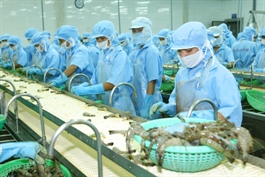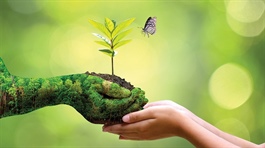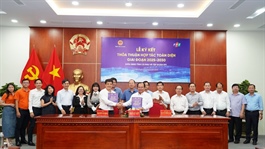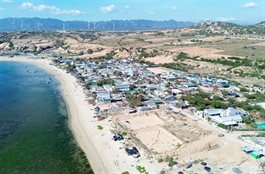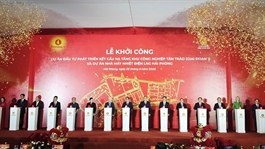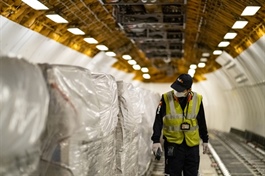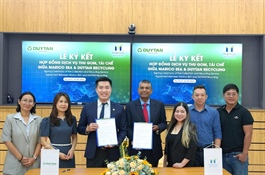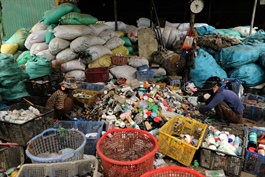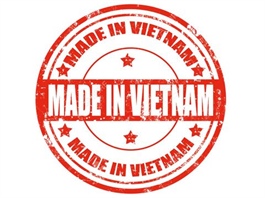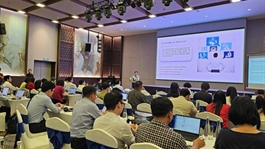GEAPP mobilises $1.7bn to power Southeast Asia’s clean energy shift
GEAPP mobilises $1.7bn to power Southeast Asia’s clean energy shift
Amid global headwinds threatening climate and development goals, new funding is being mobilised to accelerate Southeast Asia’s clean energy shift.
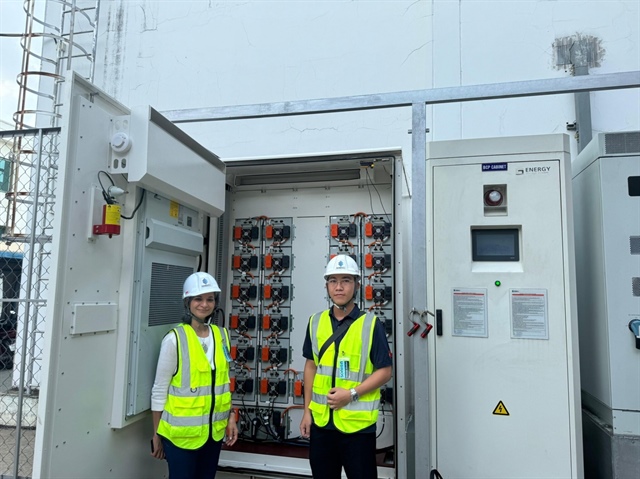
GEAPP is helping integrate large-scale battery storage into the national grid |
On September 27, the Global Energy Alliance for People and Planet (GEAPP) announced it has unlocked $1.7 billion in financing to support clean energy transition across the region. The initiative underscores the impact of collaboration between governments, philanthropies, and the private sector in transforming energy systems, creating jobs, and addressing climate change in emerging economies.
As showcased in its 2025 Impact Report, GEAPP's public-private-philanthropy partnership model builds country-led coalitions and leverages catalytic finance and technical expertise to advance a sustainable energy future.
Since its inception at COP26 in 2021, the alliance has awarded $503 million in catalytic funding, helping unlock $7.8 billion in total investments and powering 137 projects in over 30 countries.
Its partnership model is now on track to improve energy access for 91 million people, support or create 3.1 million jobs and livelihoods and prevent 296 million tonnes of carbon emissions.
"The findings in this report prove the value of public, private, philanthropic partnerships and demonstrate that a just energy transition is a powerful engine for jobs and economic growth," said Woochong Um, CEO of the Global Energy Alliance. "This report demonstrates that when governments, investors, innovators, and communities come together, we can drive systemic change, creating solutions that work locally and scale globally."
Case studies from India, Africa, Latin America and the Caribbean, and Southeast Asia highlight how catalytic capital, technical expertise, and country-led coalitions are breaking barriers. Solar mini-grids in Nigeria and mesh-grids in Haiti now power remote communities; a first-of-its-kind battery storage scheme in India delivers reliable energy to low-income households; training and capacity building in South Africa are driving a fair transition; and Indonesia’s floating solar venture demonstrates how decentralised, climate-resilient systems can expand access in vulnerable regions.
The report underscores several key lessons. Pairing finance with technical expertise is vital for building strong project pipelines and accelerating adoption. The most effective solutions are country-led, market-based, and aligned with national priorities. Long-term alliances are crucial for systemic change, while adaptable timelines, contingency budgets, and strong local partnerships ensure resilience. Financing should be linked to measurable outcomes, supported by embedded data systems to track progress, adjust strategies, and provide evidence to influence the wider sector.
One of the key focus regions for GEAPP since its inception has been Southeast Asia. With the increase in electrification in the region, the key challenges facing the clean energy transition are the dependency on traditional sources of energy, limited grid modernisation, and hurdles in climate financing.
The alliance has contributed to unlocking $1.7 billion in finance, resulting in 37 projects deployed and ready for deployment in the region. These projects are slated to improve access for 4 million people, improve jobs and livelihoods for an additional 77,000 people, and reduce carbon emissions by an estimated 18 Mt.
To address the financing barriers for climate action in Southeast Asia, GEAPP has supported platforms such as the Financing Asia’s Transition Partnership, a blended finance initiative that brings together international public, private, and philanthropic partners to support Asia’s decarbonisation and climate resilience. It has also partnered with the Asian Development Bank to launch the Enhancing Access to BESS for Low-carbon Economies (ENABLE) platform, which will operationalise the BESS Consortium, mobilise funding and technical assistance for first-wave storage projects, and accelerate the sharing of best practices across the region.
Commenting on the progress, Kitty Bu, vice president of GEAPP in Southeast Asia, said, "The clean energy transition in Southeast Asia cannot be achieved in isolation; it demands collaborative, concerted action across governments, development banks, the private sector, and communities. We are committed to building these partnerships to unlock climate finance, modernise grids, and accelerate the deployment of renewable energy solutions."
In Vietnam, GEAPP is helping to chart a pathway for large-scale battery integration into the national grid. It has worked with national authorities to launch a BESS Task Force, which will guide technical standards, regulatory frameworks, and financing models to accelerate deployment towards Vietnam’s energy storage goal by 2030. These initiatives aim to build investor confidence while ensuring that the transition supports reliable power for households and industries alike.
"Vietnam is taking decisive steps to integrate storage into its energy system, showing that innovation and policy can go hand in hand. By establishing the Task Force, we are creating the building blocks for a stable, renewable-powered grid that supports both growth and resilience. These early moves will set the foundation for scaling storage solutions nationwide," said Minh Nguyen, country manager of GEAPP.
Looking ahead, GEAPP aims to deepen private sector engagement to meet the rising financial and technological demands of the energy transition. By supporting the ASEAN Power Grid initiative, led by the ASEAN Secretariat with backing from the Asian Development Bank and the World Bank Group, GEAPP is helping Southeast Asian governments accelerate regional integration and clean energy deployment.
Together, these efforts could slash 100 million tonnes of CO2 and unlock over 13GW of new clean energy – propelling Southeast Asia towards a greener, more resilient future
- 23:12 29/09/2025



